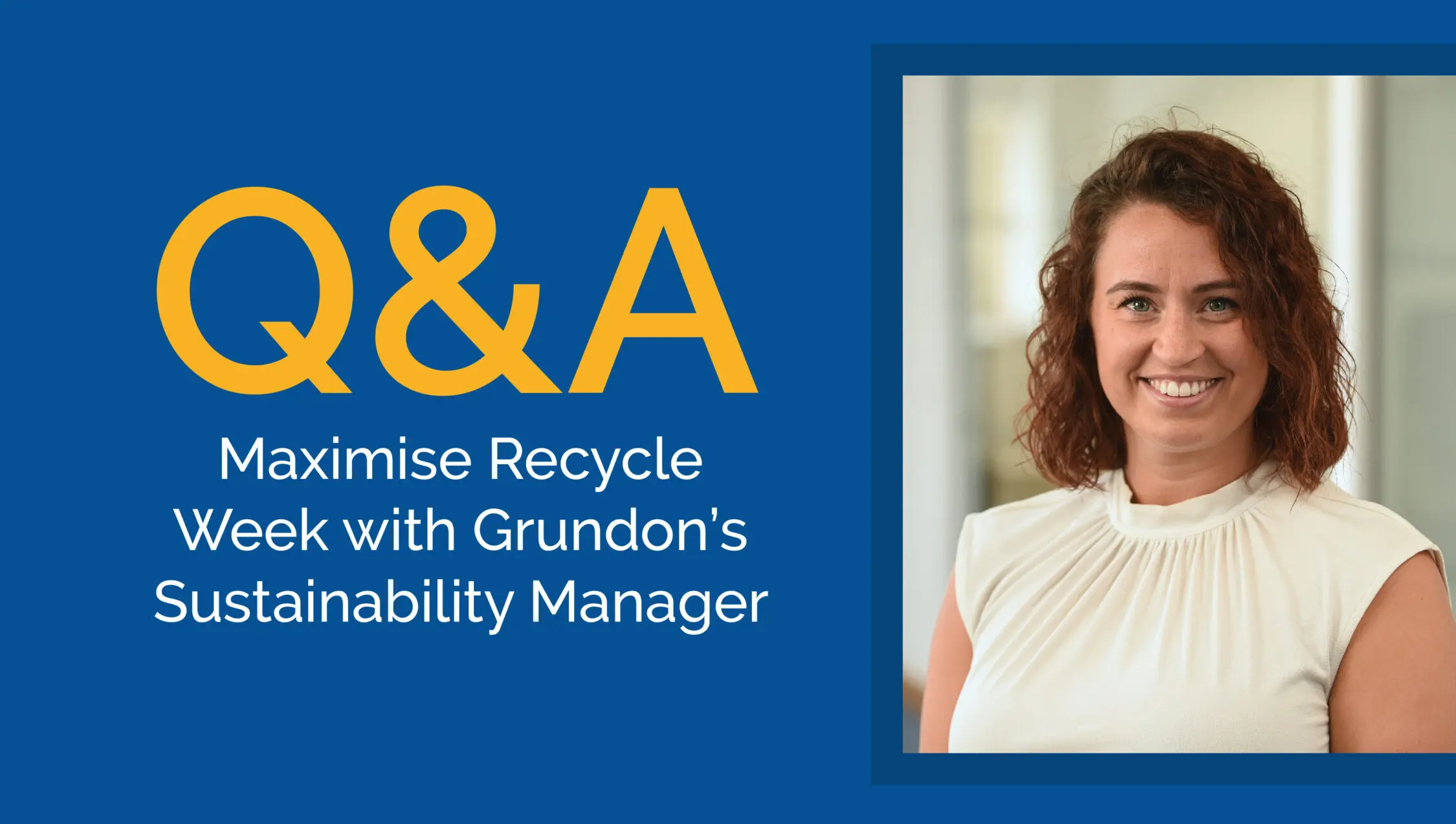
Your general waste bin might just be sitting on a treasure trove of recyclables every single day. In the spirit of Recycle Week (14-20 October 2024), we caught up with Alex Grant, Sustainability Manager, to uncover the significance of commonly disregarded recyclables.
Q1: Can you tell us a little bit about your role as Sustainability Manager?
Absolutely, my days are all about action and advocacy! I support our customers in reaching their sustainability goals through leading educational initiatives such as ‘lunch & learns’, waste awareness days, presentations, and seminars. My role also involves building meaningful partnerships with charities and attending and organising impactful volunteering days. I’m passionate about driving sustainability forward because at the end of the day, it’s not just good for the environment, it’s crucial for business efficiency and longevity too.
Q2: Tell us more about the ‘Rescue Me’ theme for this year’s Recycle Week?
Recycle Week is a standout event for us. This year’s theme, ‘Rescue Me’, focuses on saving commonly used recyclables that often end up in the general waste bin, such as your morning yogurt pots or toilet paper rolls. With various disposal options available at home, on the go, or in business settings, it’s crucial not to overlook these items as their proper recycling plays a large role in reducing our carbon footprint and increasing your overall recycling rate.

Q3: As a sustainability expert, in your opinion, why is it important to ensure recyclable items end up in the right bin?
When items are placed in the wrong bin, they can contaminate clean, correctly sorted materials in both the bin and the materials in the collection vehicles. For instance, food residue can ruin an entire batch of nice clean paper and cardboard, affecting their ability to be recycled. This not only impacts the environment but can also reduce recycling rebates for businesses.
Q4: What are your top tips to businesses for getting recycling right?
Keep it simple and strategic! Colour coding your bins is a fantastic start, it visually guides everyone to recycle correctly. Implement a consistent colour coding scheme for both indoor and outdoor bins to assist staff in correctly disposing of waste across all settings.
Clear, straightforward signage is crucial as well. It should effectively communicate recycling instructions to everyone, regardless of their first language. Additionally, consider ditching personal under-the-desk bins. These tend to collect a mix of recyclables and non-recyclables like plastic bottles, paper, food, and wrappers, increasing contamination risk and hindering recycling goals. Switching to centralised waste stations not only helps reduce contamination but also encourages staff to move around during the day.

Q5: Are there any upcoming changes you think businesses should be aware of?
New regulations, such as the Simpler Recycling legislation, will soon mandate businesses to separate dry recyclables into dedicated containers, and ensure food waste is collected separately. The aim is to boost recycling, dispel any confusion regarding recyclable and non-recyclable materials, and provide consistency across England.
At Grundon, we’re here to help businesses navigate these changes smoothly, ensuring that adapting to new legislation is as painless as possible. Getting it right with recycling and staying on top of these regulatory standards demonstrates environmental responsibility to your customers you care and can even achieve substantial cost savings.
Recycle Week reminds us to find every opportunity to give unexpected waste items a new lease on life. Ready to enhance your recycling efforts and minimise your environmental footprint? For professional waste auditing and comprehensive recycling services, contact our team at sales@grundon.com.
